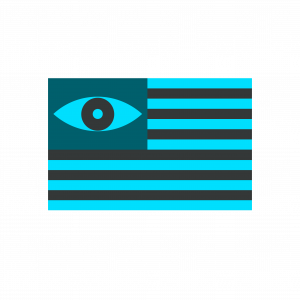19
Bella Foss

The National Security Agency (NSA), is a “U.S. intelligence agency within the Department of Defense that is responsible for cryptographic and communications intelligence and security” (National Security Agency, 2018, para. 1). The NSA’s main function is to use surveillance to prevent attacks on, and promote the interests of, the United States of America. “The NSA grew out of the communications intelligence activities of U.S. military units during World War II. It was established in 1952 by a presidential directive from Harry S. Truman” (National Security Agency, 2018, para. 2). Harry S. Truman was nearing the end of his term when he created the NSA. One law that helps provide oversight for the NSA is the Freedom of Information Act (FOIA). “The Freedom Of Information Act (FOIA) generally provides that any person (with the exception of another federal agency, a fugitive from the law, or a representative of a foreign government) has a right, enforceable in court, to request access to federal agency records, except to the extent that such records (or portions thereof) are protected from disclosure by one of nine exemptions” (National Security Agency, 2005, para.2). This means that citizens can request information from the NSA.
Despite the ability of FOIA to provide oversight, the NSA’s operations are controversial. “The National Security Agency, a component of the defense department, is engaged in unconstitutional surveillance of Americans’ communications, including their telephone calls and emails. (Documents confirm, 2017, para. 1). Edward Snowden is famous for leaking classified NSA information and exposing agency abuses. “The Guardian publishes its first exclusive based on Snowden’s leak, revealing a secret court order showing that the US government had forced the telecoms giant Verizon to hand over the phone records of millions of Americans” (Gidda, 2013, para. 3). The Snowden case is a prime example of how the NSA is surveilling US American citizens without their knowledge. Before Snowden’s release of information citizens were unaware of the full extent of the surveillance they were to which they were subject.
References
Documents confirm how the NSA’s surveillance procedures threaten Americans’ privacy. (2017). American Civil Liberties Union. Retrieved from https://www.aclu.org/fact-sheet/documents-confirm-how-nsas-surveillance-procedures-threaten-americans-privacy
Gidda, M. (2013, August 21). Edward Snowden and the NSA files timeline. The Guardian. Retrieved from https://www.theguardian.com/world/2013/jun/23/edward-snowden-nsa-files-timeline
Freedom of Information Act (2005). National Security Agency Retrieved from https://www.nsa.gov/Resources/Everyone/foia/
National Security Agency. (2018). Encyclopaedia Britannic. Retrieved from https://www.britannica.com/topic/National-Security-Agency
